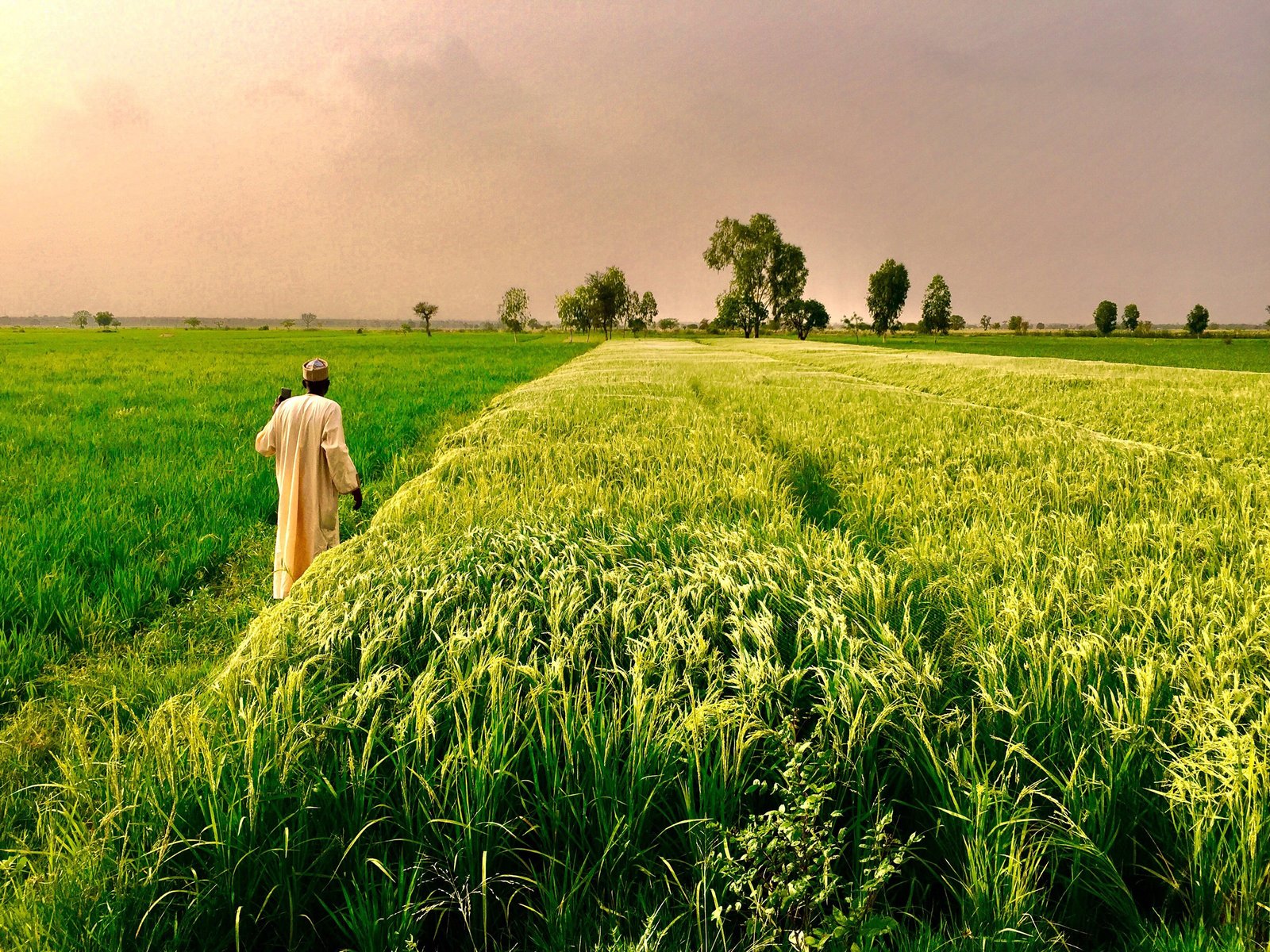Nigeria, often referred to as the “Giant of Africa,” boasts a vast and diverse landscape with rich agricultural potentials. With a population of over 200 million people, Nigeria faces the challenge of providing food security and economic growth. In this article, we will explore Nigeria’s agricultural potentials, the challenges it has faced in fully realizing them, and the opportunities for transforming its agricultural sector into a powerhouse for the nation’s development.
**Historical Overview**
Agriculture has always played a vital role in Nigeria’s history and economy. Before the discovery of oil, agriculture was the primary source of revenue for the country. The agricultural sector remains the largest employer of labor in Nigeria, engaging millions of smallholder farmers across the nation.
**Diverse Agro-Ecological Zones**
Nigeria’s diverse climate and geography offer a wide range of agro-ecological zones, making it suitable for a variety of crops and livestock. These zones include the Sahel Savannah, Sudan Savannah, Guinea Savannah, and Mangrove Swamp, each with its unique agricultural potential.
**Key Agricultural Products**
1. **Crops**: Nigeria is a leading producer of various crops, including cassava, yam, maize, millet, sorghum, rice, and cocoa. The nation is the largest producer of cassava in the world, with opportunities for value addition and export.
2. **Oil Palm**: Nigeria was once a leading global exporter of palm oil. With growing global demand for sustainable palm oil, there is renewed interest in revitalizing the oil palm sector.
3. **Livestock**: Nigeria has a significant livestock industry, with opportunities for growth in poultry, cattle, sheep, and goat farming. The dairy sector also holds enormous potential.
4. **Cash Crops**: Cocoa, rubber, and oilseeds like groundnut and soybean are cash crops with export potential, contributing to foreign exchange earnings.
5. **Fisheries**: With its vast coastline and inland water bodies, Nigeria has great potential in fisheries and aquaculture. The country is among the top fish producers in Africa.
**Challenges in Nigeria’s Agricultural Sector**
While Nigeria possesses enormous agricultural potentials, several challenges have hindered the sector’s growth and productivity:
**1. Infrastructure Deficit**: Inadequate transportation, storage facilities, and energy supply hinder the efficient movement of agricultural produce and add to post-harvest losses.
**2. Access to Credit**: Many smallholder farmers lack access to affordable credit, limiting their ability to invest in modern farming techniques, inputs, and machinery.
**3. Low Mechanization**: The sector remains predominantly subsistence-based, with low levels of mechanization and modern farming practices.
**4. Inconsistent Policies**: Frequent changes in agricultural policies have led to uncertainty in the sector and hindered long-term planning and investments.
**5. Climate Change**: Erratic weather patterns, flooding, and droughts affect crop yields and livestock production, posing a significant challenge.
**6. Land Ownership Issues**: Land tenure systems and disputes can complicate land acquisition and hinder large-scale agricultural investments.
**Opportunities for Transformation**
Despite these challenges, Nigeria’s agricultural sector has the potential for significant transformation and modernization:
**1. Value Chain Development**: Focusing on the entire agricultural value chain, from production to processing and marketing, can create jobs and add value to agricultural products.
**2. Research and Innovation**: Investing in agricultural research and technology can lead to improved crop varieties, pest control, and sustainable farming practices.
**3. Agribusiness and Entrepreneurship**: Encouraging youth participation in agribusiness through training and incentives can drive innovation and boost productivity.
**4. Access to Finance**: Expanding access to affordable credit and financial services for smallholder farmers can enable them to invest in modern farming techniques.
**5. Public-Private Partnerships**: Collaborations between the government and private sector can lead to the development of critical agricultural infrastructure and investment in large-scale commercial agriculture.
**6. Climate-Smart Agriculture**: Implementing climate-smart agricultural practices can help mitigate the impact of climate change on agriculture.

**Government Initiatives**
The Nigerian government has recognized the importance of agriculture in the nation’s development and has launched several initiatives to support the sector’s growth:
**1. Anchor Borrowers’ Program**: This program provides loans to smallholder farmers and links them with processors and markets.
**2. Presidential Fertilizer Initiative**: It aims to increase fertilizer production and accessibility to farmers, boosting soil fertility and crop yields.
**3. Green Alternative**: The government’s agricultural promotion policy focuses on crop and livestock value chains, mechanization, and agribusiness.
**4. National Livestock Transformation Plan**: This initiative seeks to modernize the livestock sector, reduce conflicts between farmers and herders, and improve livestock productivity.
**5. Agricultural Mechanization**: The government is investing in agricultural machinery and equipment to improve mechanization and reduce the drudgery of farming.
**Conclusion**
Nigeria’s agricultural potentials are vast, and the sector has the capacity to drive economic growth, reduce unemployment, and enhance food security. To fully realize these potentials, the government, private sector, and international partners must work together to address the challenges faced by smallholder farmers, invest in infrastructure, promote modern farming practices, and encourage youth participation in agribusiness.
The transformation of Nigeria’s agricultural sector is not only an economic imperative but also a means of ensuring food security and reducing poverty. By harnessing its agricultural potentials, Nigeria can fulfill its role as the “Giant of Africa” and set an example for sustainable agricultural development on the continent.









